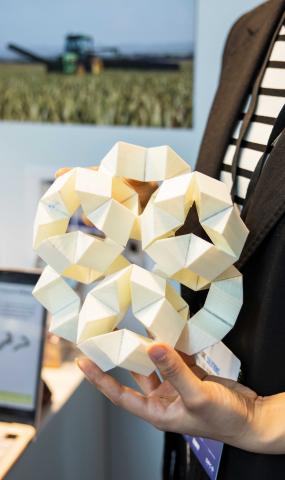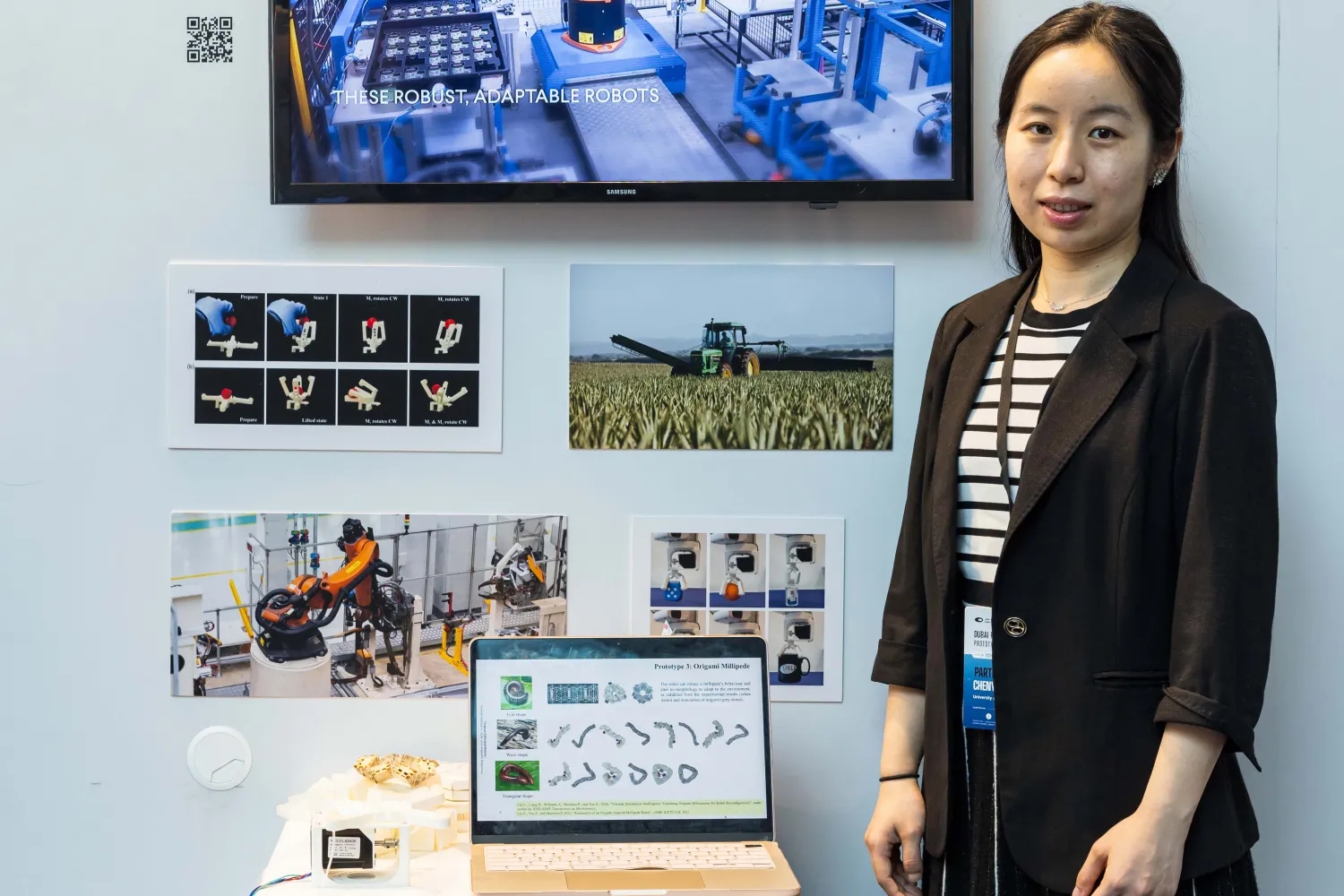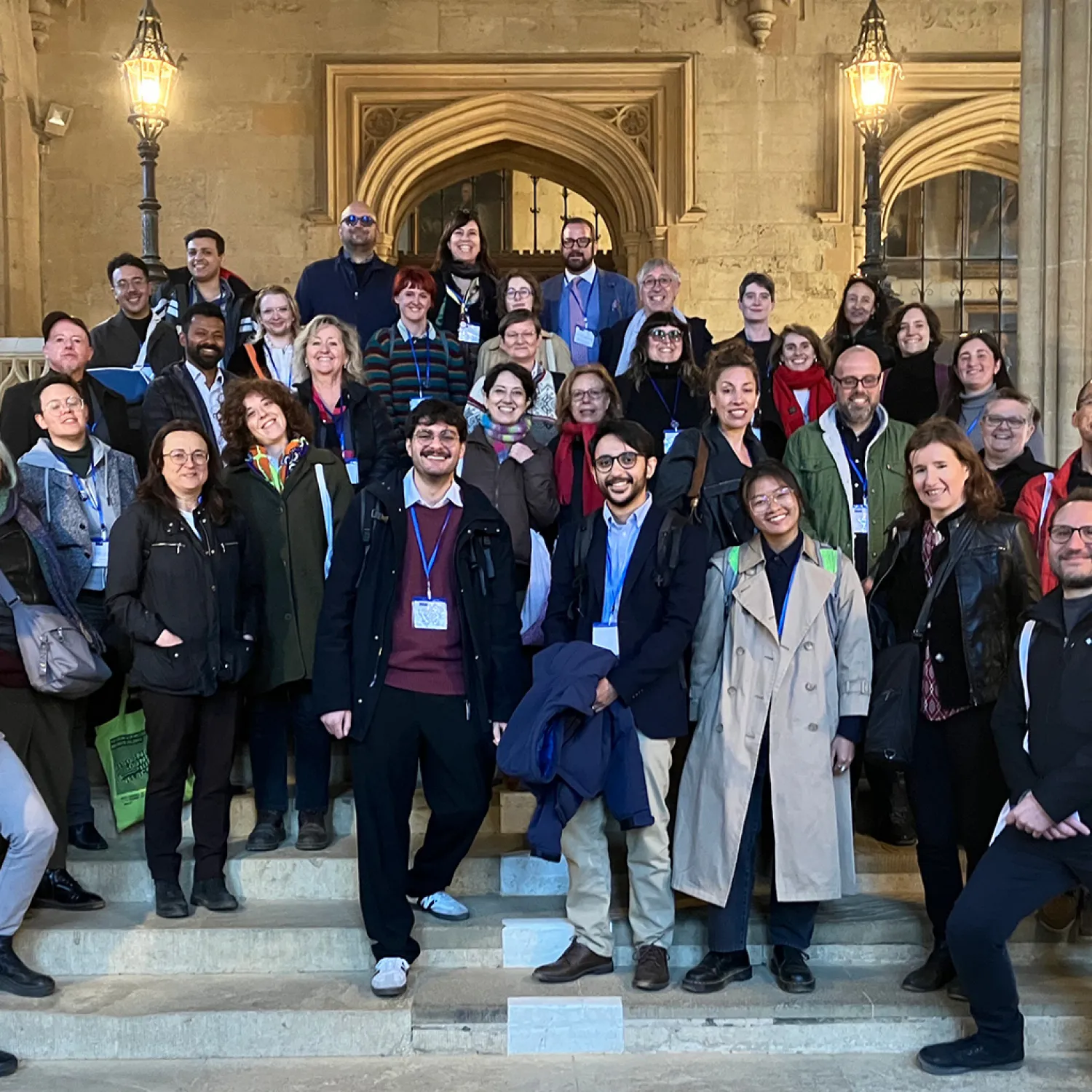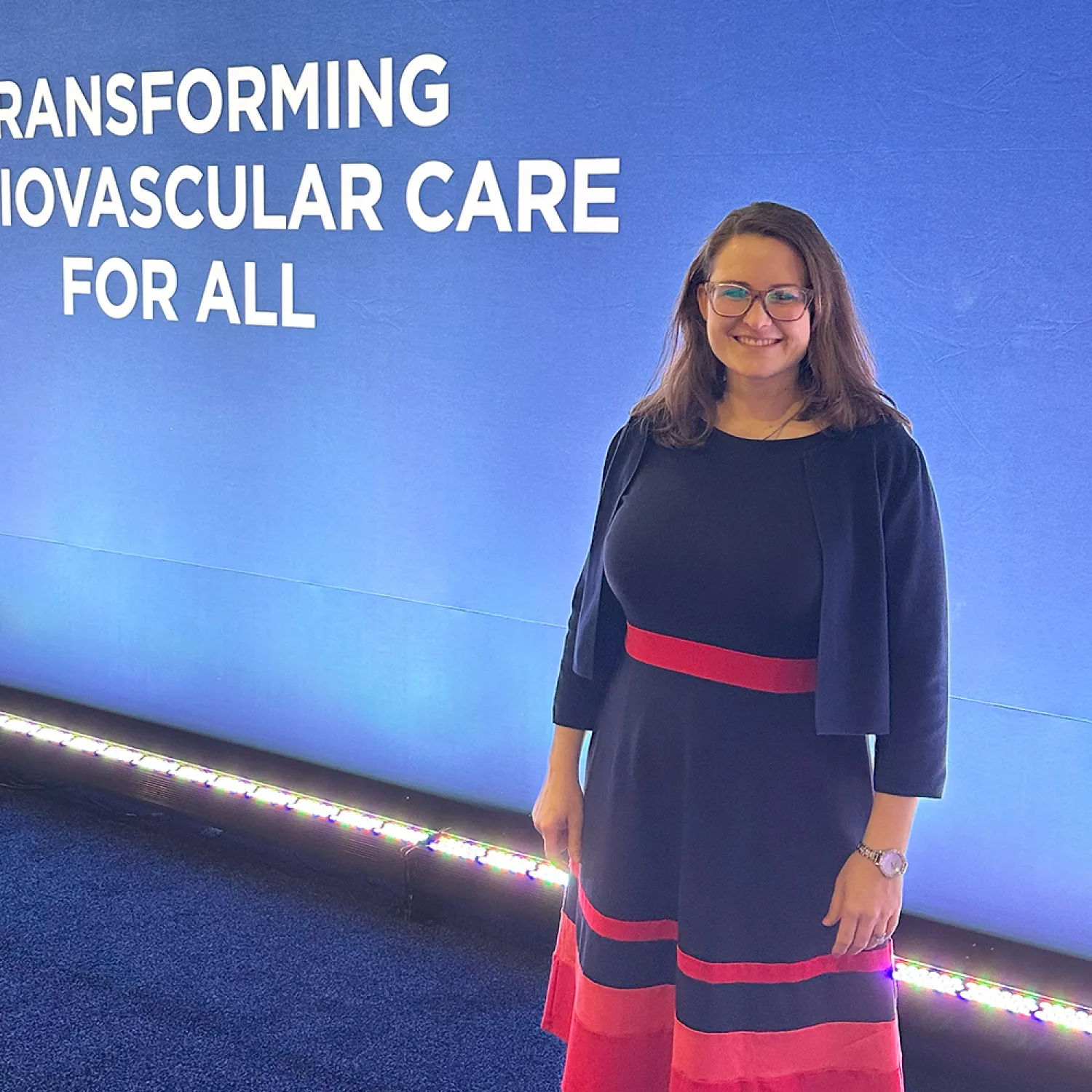Breadcrumb
Dr Chenying Liu has project showcased in Dubai
‘Origami-Informed Robots’, the research project of Christ Church Lecturer in Engineering Dr Chenying Liu, has been showcased in Dubai as part of the emirate’s annual Prototypes for Humanity programme. More than 2,700 submissions were made this year, with the top 100 – including Dr Liu’s project – being displayed in an exhibition in Dubai last month.
Established by the UAE’s Dubai Future Foundation, the Prototypes for Humanity programme celebrates and supports academics and research students from across the globe whose work seeks to address some of the most urgent social and environmental challenges facing our species. The programme sees government, investors and industry come together to ‘advance academic research into viable entities’. One way in which this is done is through annual Prototypes for Humanity Awards, where prizes are awarded to the students and lead academic behind each of the best solutions across five categories – energy, civil society, nature, AI and data science, and health – with the 2024 prize pot totalling $100,000.
This year more than 2,700 submissions were made to Prototypes for Humanity by researchers and students from over 800 universities in over 100 countries. As well as selecting the five winning projects, the 2024 jury chose just 100 projects to appear in a Dubai showcase last month. Held in Emirates Towers from 18 to 21 November, the Dubai Future Solutions – Prototypes for Humanity exhibition was a celebration of sustainable innovation, and among the projects featured was that of Christ Church Lecturer in Engineering Dr Chenying Liu.
Dr Chenying Liu is a Postdoctoral Researcher at the Podium Institute for Sports Medicine and Technology, prior to which she completed her DPhil in Engineering Science at the University of Oxford. In her research, Dr Liu explores how origami (i.e. paper folding) gives rise to remarkable mechanical properties and how insights drawn from this investigation leads to new applications in the fields of healthcare and sustainability technology.
In her latest project, exhibited in Dubai last month, Dr Liu sets out to address limitations of ‘soft robots’. Unlike traditional robots with rigid metal arms, soft robots are an emerging type of robot made from soft materials, similar to those found in natural organisms. Materials like silicone rubber can mimic the behaviour of muscles and skin, making soft robots more adaptable to their environment and safer for human interaction. However, their softness poses challenges, such as difficulty in maintaining their shape and controlling their movements. This is the problem that Dr Liu’s showcased project, entitled ‘Origami-Informed Robots’, endeavours to solve.
I am delighted to have had the opportunity to present how small folding structures can have a big impact on society.
I am delighted to have had the opportunity to present how small folding structures can have a big impact on society.
As Dr Liu explains, origami, with its combination of rigid facets and flexible joints, offers a balance of rigidity and flexibility: ‘Origami-based designs provide soft-bodied properties akin to soft materials while offering improved control and actuation.’

The advance that Dr Liu’s research makes is in the application of origami techniques to more robust engineering materials: ‘Despite its potential, traditional origami faces limitations due to its reliance on paper. My project addresses this by not only applying origami principles to replace soft materials in robots but also investigating fundamental folding techniques to incorporate durable engineering materials like plastics, wood, and even metal.’
This marrying of the benefits of rigidity and flexibility leads to a host of real-world applications in sectors as diverse as agriculture and waste management. Dr Liu has been able to develop adaptable grippers capable of handling delicate objects, such as eggs or soft-skinned fruits (e.g. strawberries and blueberries) – a cost-effective and practical solution for agricultural harvesting. She has also applied her research to the design of dexterous manipulators for handling hazardous materials in nuclear plants, which reduce human exposure to dangerous and tedious tasks. A third, perhaps unexpected application of the technology is in millipede-like robots that can transform into circular, wave-like, or triangular shapes to navigate confined spaces, offering great potential in disaster rescue operations.
Dr Liu was delighted to have her project selected for the Prototypes for Humanity exhibition: ‘It was a great honour to showcase my work as part of the Prototype for Humanity exhibition in Dubai. I am delighted to have had the opportunity to present how small folding structures can have a big impact on society. This project builds on my doctoral research in the Department of Engineering Science at the University of Oxford, supervised by Professors Zhong You and Perla Maiolino, who bring complementary expertise in origami structures and soft robotics. I have also worked closely with Professor Liang He, whose insights have been invaluable throughout the project.
‘The exhibition was an invaluable opportunity to engage with industrial sectors and explore potential commercialisation of my work. Equally exciting was the chance to see other inspiring projects across diverse fields, including machine learning, sustainable battery technology, and biomedical devices.’

Dr Liu is a Postdoctoral Researcher at the Podium Institute for Sports Medicine and Technology and Stipendiary Lecturer in Engineering at Christ Church, University of Oxford. Learn more about her research via her Christ Church profile.
Other Christ Church news



